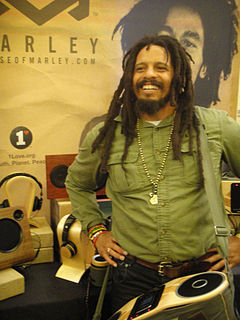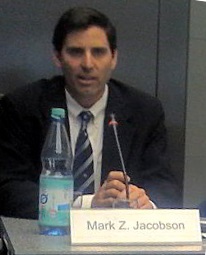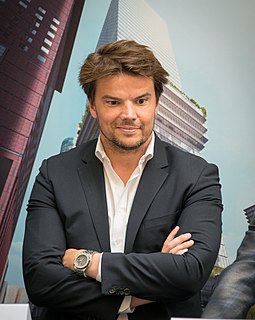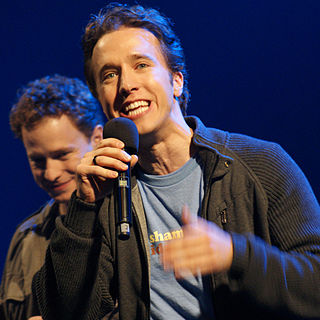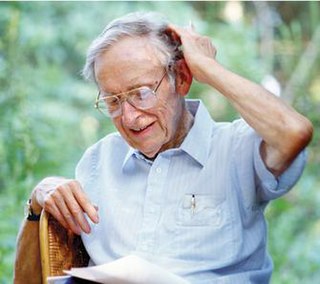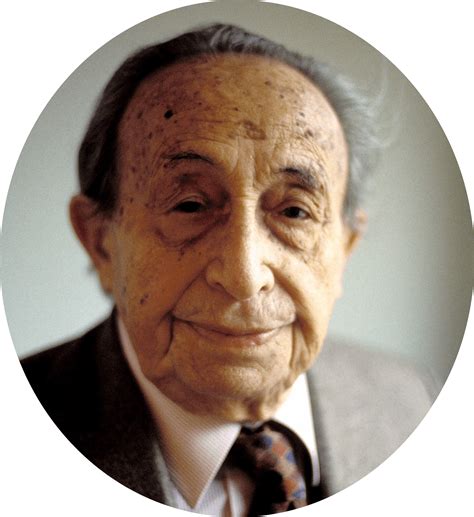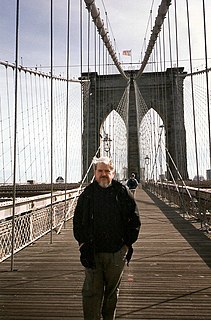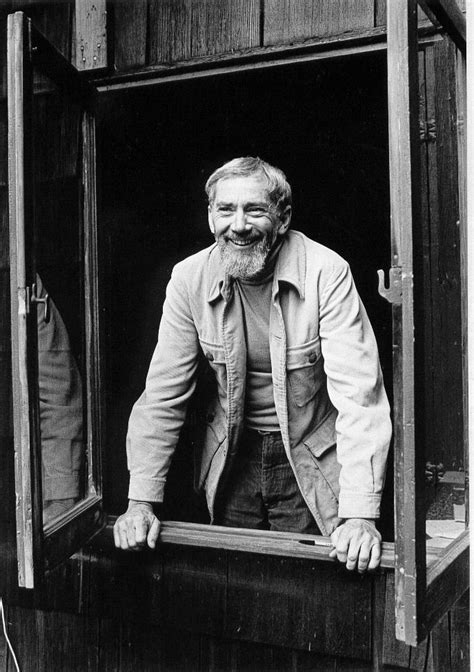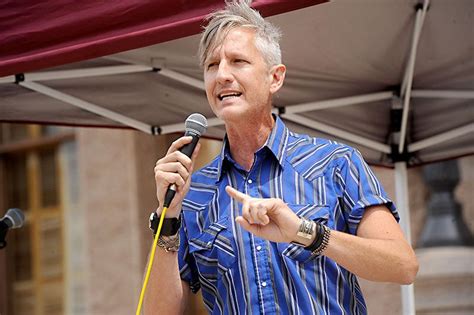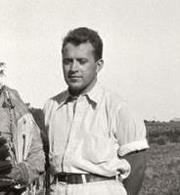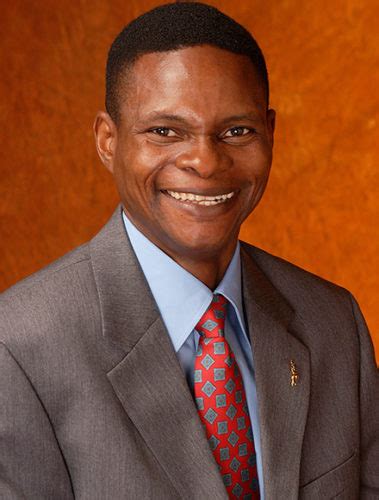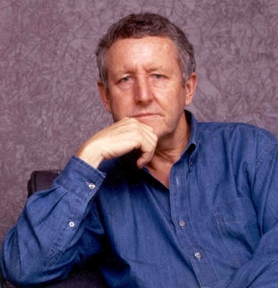Top 213 Ecology Quotes & Sayings - Page 3
Explore popular Ecology quotes.
Last updated on April 20, 2025.
Ecology's implications for capitalism are too momentous for the capitalist to contemplate. The plutocrats are more wedded to their wealth than to the Earth upon which they live, more concerned with the fate of their fortunes than with the fate of humanity. The present ecological crisis has been created by the few at the expense of the many.
Restoration ecology is experimental science, a science of love and altruism. In its attempts to reverse the processes of ecosystem degradation it runs exactly counter to the market system, to land speculation, to the whole cultural attitude of regarding the Earth as commodity rather than community. It is a soft-souled science.
Hippies started the ecology movement. They combated racism. They liberated sexual stereotypes, encouraged change, individual pride, and self-confidence. They questioned robot materialism. In four years they managed to stop the Vietnam War. They got marijuana decriminalized in fourteen states during the Carter Administration.
Reality, in its quantitative aspect, must be considered as a system of populations... The general study of the equilibria and dynamics of populations seems to have no name; but as it has probably reached its highest development in the biological study known as 'ecology,' this name may well be given to it.
Historically, very few discoveries were made out of thin air. Most of the greatest insights depended upon the intellectual ecology in which the scientists lived. A certain critical mass of "new findings" occurred, and bright people all over the world found out about it, and several read the tea leaves the same way.
For the Amahuaca, the Koyukon, the Apache, and the diverse Aboriginal peoples of Australia - as for numerous other indigenous peoples - the coherence of human language is inseparable from the coherence of the surrounding ecology, from the expressive vitality of the more-than-human terrain. It is the animate earth that speaks; human speech is but a part of that vaster discourse.
We are reaping the fruits of ten thousand, fifty thousand years of sowing of the fields of mind. And it is being dropped into our laps for us to create human-machine interfacing, control of genetic material, redefinition of social reality, re engineering of languages, revisioning of the planetary ecology, all these things fall upon us.
Considering that we live in an era of evolutionary everything---evolutionary biology, evolutionary medicine, evolutionary ecology, evolutionary psychology, evolutionary economics, evolutionary computing---it was surprising how rarely people thought in evolutionary terms. It was a human blind spot. We look at the world around us as a snapshot when it was really a movie, constantly changing.
Not too many people know it, but when I was in junior high, I was a pretty tough kid and was the leader of a street gang. Well, OK, it was less a street gang than an Ecology Club. We were pretty intimidating, though, and had our own meeting room until we got run out of there by a bunch of thugs from the Poetry Society.
I learned that [Trotskyism] were no different from the Stalinists, and they expelled me, which is the typical Marxist-Leninist way of dealing with dissenters. From that point on, I migrated by the 1950s into anarchism, increasingly emphasizing decentralization. Also, I made the all-important step of bridging my social philosophy with ecology. I did that in 1952 and went on to write a whole series of books developing an anarcho-ecological approach.
In our own time, through integrative sciences like ecology and animal behavior and psychology we have re-understood what was forgotten during the reduction centuries of modern science. We've re-understood that the world is one thing, and it's a living thing. It's a thing with an intent and a spirit within it, and this is the key concept.
The climate change debate is basically not about science; it is about ideology. It is not about global temperature; it is about the concept of human society. It is not about nature or scientific ecology; it is about environmentalism, about one - recently born - dirigistic and collectivistic ideology, which goes against freedom and free markets.
Starting from the very reasonable, but unfortunately revolutionary concept that social practices which threaten the continuation of life on Earth must be changed, we need a theory of revolutionary ecology that will encompass social and biological issues, class struggle, and a recognition of the role of global corporate capitalism in the oppression of peoples and the destruction of nature.
For those who want to understand the issues of the environmental crisis, Encounters with the Archdruid is a superb book. McPhee reveals more nuances of the value revolution that dominates the new age of ecology than most writers could pack into a volume twice as long. I marvel at his capacity to listen intently and extract the essence of a man and his philosophy in the fewest possible words.
Contrary to popular belief, we do not face a choice between economy and ecology, It is often said that protecting the environment would constrain or even undermine economic growth. In fact, the opposite is true: unless we protect resources and the earth's natural capital, we shall not be able to sustain economic growth.
Capitalism’s grow-or-die imperative stands radically at odds with ecology’s imperative of interdependence and limit. The two imperatives can no longer coexist with each other; nor can any society founded on the myth that they can be reconciled hope to survive. Either we will establish an ecological society or society will go under for everyone, irrespective of his or her status.
Rather than relying on farmers, ranchers, outdoorsmen, lumberjacks, surveyors, oil workers, miners, or community leaders who have decades of land use experience, government policymakers turn to 25-year-olds with master's degrees in ecology and political science to run the country's public lands policy.
When the study of the household (ecology) and the management of the household (economics) can be merged, and when ethics can be extended to include environmental as well as human values, then we can be optimistic about the future of humankind. Accordingly, bringing together these three ‘E's' is the ultimate holism and the great challenge for our future.
The territorial body has been polluted by roads, elevators, etc. Similarly, our animal body starts being polluted. Ecology no longer deals with water, flora, wildlife and air only. It deals with the body itself as well. It is comparable with an invasion: technology is invading our body because of miniaturisation.
One of the great sadnesses of modern life, because of our disenfranchisement and disillusionment with religion, is that we don't have access to these ideas. Yoga and meditation, for me, is a way of, in this secular world, accessing very very beautiful principles that would perhaps make us happier, at a time when people feel disillusioned with the economy, concerned about the ecology, worried with politicians, and don't trust what they're being told on television.
When climate change gets some attention in a 100-page document, the most important parts of which will have to do with the theology of stewardship and the theology of "human ecology," it's almost certainly going to be rapturously embraced, or bitterly opposed, as a "global-warming encyclical," despite the evidence that it's much more broadly gauged than that.
Unlike television, reading does not swallow the senses or dictate thought. Reading stimulates the ecology of the imagination. Can you remember the wonder you felt when first reading The Jungle Book or Tom Sawyer or Huckleberry Finn? Kipling’s world within a world; Twain’s slow river, the feel of freedom and sand on the secret island, and in the depths of the cave?
All around us, aspects of the modern world - diet, exercise, medicine, art, work, family, philosophy, economics, ecology, psychology - have begun a long circle back toward their former coherence. Whether they can arrive before the natural world is damaged beyond repair and madness destroys humanity, we cannot tell.
Acoustic ecology is the study of information systems: the shared acoustic environment and how species send and receive messages in this shared acoustic environment. What these messages mean - meaning, what are the consequences and the changes of behavior in any species. And it has as much to do with us individually and biologically as it does with the shaping of cultures and beliefs.
[A]ll the categories of creatures act individually as special-case and may be linearly analyzed; retrospectively, it is discoverable that inadvertently they are all interaffecting one another synergetically as a spherical, interprecessionally regenerative, tensegrity spherical integrity. Geodesic spheres demonstrate the compressionally discontinuous--tensionally continuous integrity. Ecology is tensegrity geodesic spherical programming.
The realizations of anarchist ideas and practices are like sociopolitical ecosystems. Local versions resemble each other, but they are endlessly adaptive and everywhere different to meet their needs in their environments. Anarchism can be adapted to meet the culture, economics, ecology, and politics of various people or communities. That's the beauty of it.
Ecology also teaches that all life on earth can be viewed as a competition among species for the solar energy captured by green plants and stored in the form of complex carbon molecules. A food chain is a system for passing those calories on to species that lack the pant's unique ability to synthesize them from sunlight.
The careful scholarship of the dedicated amateur mycophile R. Gordon Wasson reads like an exciting scientific detective story. Moreover, his willingness to pursue the quest through the wide range of linguistics, archeology, folklore, philology, ethnobotany, plant ecology, human physiology, and prehistory constitutes an object lesson to all holistic professional students of man.
On a grander scale, when a society segregates itself, the consequences affect the economy, the emotions, and the ecology. That's one reason why it's easy for pro-lifers to eat factory-raised animals that disrespect everything sacred about creation. And that is why it's easy for rabid environmentalists to hate chainsaws even though they snuggle into a mattress supported by a black walnut bedstead.
The generosity of the Earth allows us to feed all mankind; we know enough about ecology to keep the Earth a healthy place; there is enough room on the Earth, and there are enough materials, so that everybody can have adequate shelter; we are quite competent enough to produce sufficient supplies of necessities so that no one need live in misery.
When the wilderness movement emerged, it emerged separate from the issue of social inequality and the economic problems of survival. It was a preservationist ecology movement created by an occupying culture. Clearly, a wilderness movement started by Native Americans would not have had the same roots.
A massive campaign must be launched to restore a high-quality environment in North America and to de-develop the United States...De-development means bringing our economic system (especially patterns of consumption) into line with the realities of ecology and the global resource situation...Redistribution of wealth both within and among nations is absolutely essential, if a decent life is to be provided for every human being.
All nations are degrading and consuming their environment to a point beyond capacity. In the past 15 years in the U.S. we have added 1300 cities with populations over 100,000. When the environment is forced to file Chapter 11, the ecology collapses. Nations recover from war but not from a failed eco-system. The status of our environment is more threatening than all wars. It is forever.
Often what is nearest is hardest of all to see - try asking a fish to define water. Distance opens a door to revelation. When the first great distances of space were conquered by technology, a camera altered the human perspective on the Earth as radically as Galileo did when he proved the sun was the center of the universe. The ecology movement was born from a photographically altered consciousness.

